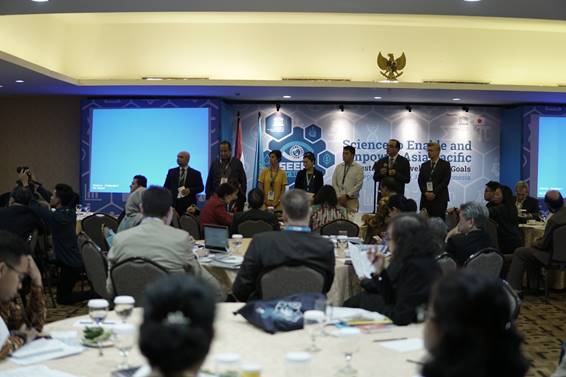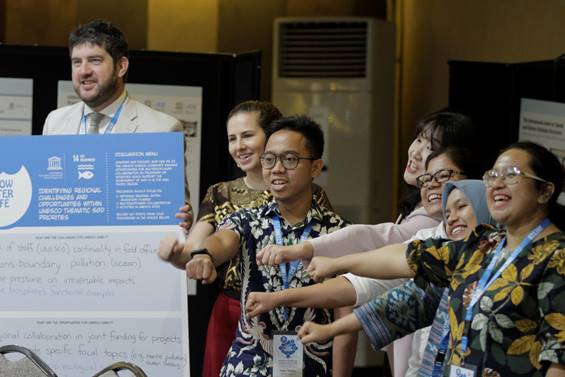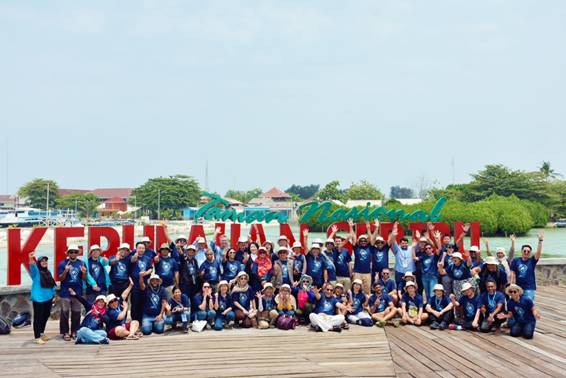UNESCO Jakarta Office organized a second regional strategic coordination meeting “Science to Enable and Empower Asia Pacific for Sustainable Development Goals II” (SEE AP for SDGs II) during 17-19 September in Jakarta supported by Japanese Funds-in-Trust. Participants identified six areas of priority to further follow-up in coming months.
We welcomed more than a hundred participants across 20 countries in Asia and the Pacific, consisting of 15 Category II Centres, UNESCO field offices, ministries and government agencies, private sector and NGOs, with more than 39 women. The meeting was congratulated by high level guests, including executive chairman of Indonesian National Commission, President of Indonesian Global Compact Network, Chairman of National Research Council of Indonesia, Deputy of Life Sciences Indonesian Institute of Sciences (LIPI), as well as the Ministry of Ministry of Education, Culture, Sports, Science and Technology (MEXT), Japan, as a donor of this meeting.
The meeting started with the panel discussion with panelists from diverse entities and countries. Among the main conclusions, the need was highlighted for organizations such as UNESCO to work both the level of global research and policy to continue investing in action at the local level. It was also agreed that the different Category II Centres and networks provide fundamental opportunity as a science-society interface. The opportunity to involve youth in a practical manner in the transversal issue of DRR was discussed. These key points were also taken over in the interactive discussion “Recap of the Global Science Retreat – opportunities and areas for action” with more concrete discussion in UNESCO’s role in the area of advocacy and communication, UNESCO’s niche through interdisciplinary collaboration, and the collaboration around the UNESCO sites.


Importance of youth mobilization and regional collaboration in Climate Action was emphasized at the key note provided by the Head of Expert Team at The Office of the President’s Envoy for Climate Change, Indonesia. Thematic sessions – “Strengthened Partnerships and Networks for related SDGs” and “Open Science and Public Mobilization” – introduced key activities among stakeholders, including report from the Open Science regional workshop which took place on 16th September.

On the second day, ideas from participants were evolved from key opportunities to concrete actions, and to the seed project proposals through a series of world café style discussions. The agreed key areas are improving urban water technology and governance, localizing SDGs through UNESCO sites, addressing vulnerabilities of remote communities, mainstreaming ocean literacy, building national and regional cooperation in Disaster Risk Reduction, and mapping and mobilizing Science, Technology, and innovation. UNESCO Jakarta Office will further follow-up these seed proposals with participation and in cooperation with all stakeholders those who are interested in each area.
On 19th, the participants visited Pramuka islands in the Thousand Islands archipelago, which lies in the western part of the Java Sea and is located north of Indonesia’s capital Jakarta. Participants enjoyed mangrove planting, sea turtle release, and coral transplantation at the Kepulauan Seribu National Park.


Recent Comments